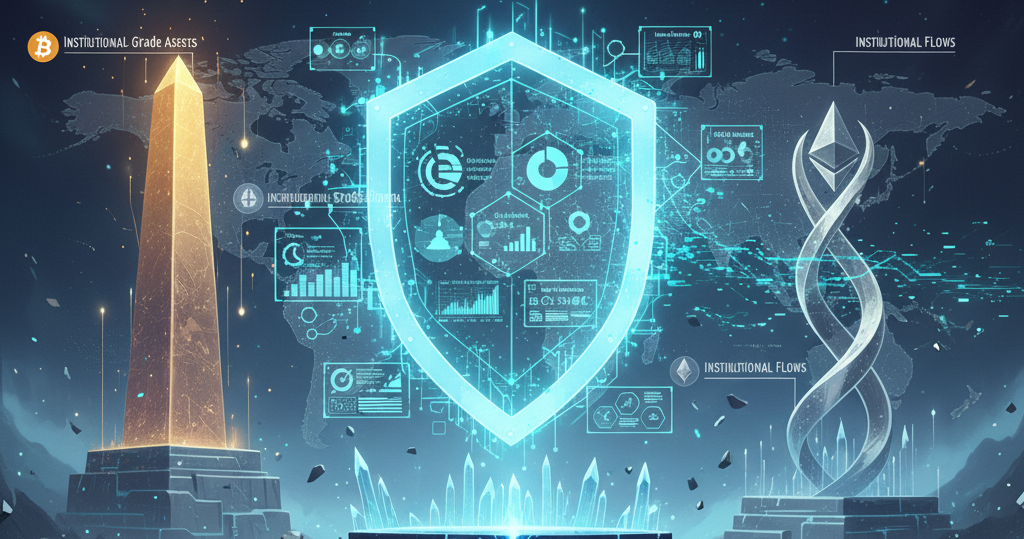Cryptocurrency is no longer just a speculative asset or tech buzzword. As blockchain technology matures, crypto is finding its way into real-life scenarios — from sending money across borders to empowering creators in the digital economy. Whether you’re a crypto newbie or someone who’s only heard of Bitcoin, it’s time to discover how this tech is quietly reshaping the way we live, work, and interact.
Real-World Use Cases of Crypto

Cryptocurrencies and blockchain technology are moving beyond speculative investments and finding practical applications in various real-world scenarios. Here are some key use cases you should know:
1. Cross-Border Payments and Remittances:
- Problem: Traditional international money transfers can be slow, expensive, and involve numerous intermediaries.
- Crypto Solution: Cryptocurrencies like stablecoins (e.g., USD Coin, Tether) offer faster and cheaper alternatives for sending money across borders. This is particularly beneficial for migrant workers sending remittances back home.
- Example: Companies are using blockchain-based payment platforms to streamline international transactions, reducing fees and processing times.
2. Supply Chain Transparency and Traceability:
- Problem: Tracking the origin and movement of goods can be difficult, leading to issues with counterfeiting, fraud, and inefficient logistics.
- Crypto Solution: Blockchain’s immutable ledger can create a transparent and auditable record of every step in the supply chain, from raw materials to final delivery.
- Example: Companies are using blockchain to track food products, ensuring their authenticity and safety, or to verify the ethical sourcing of minerals.
3. Decentralized Finance (DeFi):
- Problem: Traditional financial systems can be inaccessible to many people, particularly those in developing countries or without bank accounts.
- Crypto Solution: DeFi platforms offer financial services like lending, borrowing, and trading without relying on traditional intermediaries like banks.
- Example: DeFi protocols allow users to earn interest on their cryptocurrency holdings, borrow assets, or trade tokens on decentralized exchanges.
4. Non-Fungible Tokens (NFTs) and Digital Ownership:
- Problem: Digital assets can be easily copied and distributed, making it difficult to establish ownership and scarcity.
- Crypto Solution: NFTs provide a way to represent unique digital assets, such as artwork, music, or virtual real estate, on a blockchain, proving ownership and authenticity.
- Example: Artists are selling their digital artwork as NFTs, and gaming companies are using NFTs to represent in-game items.
5. Identity Verification and Management:
- Problem: Traditional identity verification processes can be cumbersome and vulnerable to fraud.
- Crypto Solution: Blockchain-based digital identity solutions can provide secure and tamper-proof ways to verify and manage personal information.
- Example: Projects are exploring the use of blockchain for self-sovereign identity, where individuals have greater control over their personal data.
6. Voting and Governance:
- Problem: Traditional voting systems can be susceptible to fraud and manipulation.
- Crypto Solution: Blockchain’s transparency and immutability can enhance the security and verifiability of voting processes.
- Example: Some projects are experimenting with blockchain-based voting systems for decentralized autonomous organizations (DAOs) and other governance applications.
7. Healthcare Data Management:
- Problem: Medical records are often fragmented and difficult to share securely.
- Crypto Solution: Blockchain can create a secure and interoperable system for managing patient data, improving data sharing and privacy.
- Example: Projects are exploring the use of blockchain to securely store and share electronic health records.
These examples illustrate the growing range of real-world applications for cryptocurrencies and blockchain technology. As the technology matures and adoption increases, we can expect to see even more innovative use cases emerge.
Real-world applications of crypto reveals
Expanding on the real-world applications of crypto reveals a deeper integration into diverse sectors, with potential to reshape fundamental processes. Here’s a more detailed look:
1. Revolutionizing Philanthropy and Aid Distribution:
- Transparency and Accountability:
- Blockchain’s immutable ledger ensures that donations reach their intended recipients, minimizing corruption and increasing transparency in aid distribution.
- Donors can track their contributions in real-time, fostering greater trust and accountability.
- Direct Aid and Reduced Overhead:
- Cryptocurrencies can facilitate direct transfers to individuals in need, bypassing traditional intermediaries and reducing administrative overhead.
- This is particularly valuable in disaster relief and humanitarian crises, where speed and efficiency are crucial.
2. Transforming the Energy Sector:
- Decentralized Energy Grids:
- Blockchain can enable peer-to-peer energy trading, allowing individuals and communities to buy and sell surplus energy directly.
- This can promote the adoption of renewable energy sources and create more resilient energy grids.
- Carbon Credit Trading:
- Blockchain can create transparent and verifiable systems for tracking and trading carbon credits, incentivizing emissions reductions.
- This can improve the integrity of carbon markets and accelerate the transition to a low-carbon economy.
3. Enhancing Intellectual Property Management:
- Digital Rights Management (DRM):
- NFTs and blockchain-based DRM solutions can provide creators with greater control over their intellectual property, ensuring fair compensation and preventing unauthorized use.
- This is particularly relevant in the music, film, and publishing industries.
- Patent and Copyright Protection:
- Blockchain’s timestamping and immutability can create irrefutable records of intellectual property creation, simplifying patent and copyright protection.
4. Gaming and Virtual Worlds:
- Play-to-Earn (P2E) Gaming:
- Blockchain-based games are enabling players to earn real-world value through in-game activities, creating new economic opportunities.
- NFTs represent in-game assets, allowing players to own, trade, and transfer their digital possessions.
- Metaverse and Virtual Real Estate:
- Cryptocurrencies and NFTs are powering the development of virtual worlds and metaverses, where users can buy, sell, and develop virtual real estate.
- This is creating new forms of digital commerce and social interaction.
5. Streamlining Insurance and Financial Contracts:
- Smart Contracts:
- Smart contracts, self-executing contracts stored on a blockchain, can automate insurance payouts and financial transactions, reducing fraud and improving efficiency.
- This has the potential to simplify complex financial agreements.
- Decentralized Insurance:
- DeFi protocols are enabling the development of decentralized insurance platforms, offering peer-to-peer risk sharing and reducing reliance on traditional insurance companies.
6. Government and Public Services:
- Land Registry and Property Records:
- Blockchain can create secure and transparent land registries, reducing fraud and simplifying property ownership transfers.
- This is particularly valuable in regions with weak land administration systems.
- E-Governance:
- Blockchain can enhance transparency and efficiency in government operations, such as public procurement and tax collection.
These continuously evolving use cases emphasize how crypto and blockchain technology are not just about digital currencies, but about creating more secure, transparent, and efficient systems across various industries and sectors.
Crypto is evolving from a digital gold rush into a toolkit for the modern world. Whether it’s sending money home, supporting an indie artist, or automating a legal contract, real-world applications are proving that crypto is more than hype. The next time you hear about cryptocurrency, think beyond charts and tokens—think impact.
Ready to start your cryptocurrency journey?
If you’re interested in exploring the world of crypto trading, here are some trusted platforms where you can create an account:
🔹 Binance – A global leader in cryptocurrency trading.
🔹 Bybit – A user-friendly platform for both beginners and advanced traders.
These platforms offer innovative features and a secure environment for trading and learning about cryptocurrencies. Join today and start exploring the opportunities in this exciting space!
🚀 Want to stay updated with the latest insights and discussions on cryptocurrency?
Join our crypto community for news, discussions, and market updates: OCBCryptoHub on Telegram.
📩 For collaborations and inquiries: datnk710@gmail.com
Disclaimer: Always do your own research (DYOR) and ensure you understand the risks before making any financial decisions.




